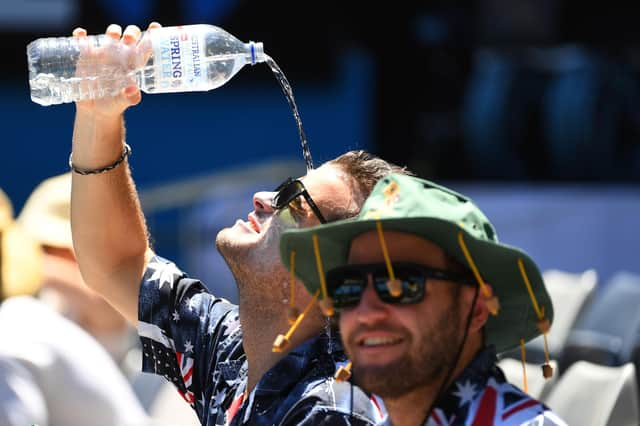Going Green: Climate change is having an impact on all sports


These impacts are increasing as we burn more oil and gas so unfortunately, we have no option but to adapt to temperature extremes in everything we do - including how we like to spend our down time.
In the UK, people spend around 122 hours a year watching and listening to sport, but the face of sport is changing due to climate change. The 2023 US tennis open final in New York between Daniil Medvedev and Carlos Alcaraz in September saw them playing in 35 degree heat as a heatwave swept across the East Coast of America.
Advertisement
Hide AdAdvertisement
Hide AdThe Australian Open in 2020 saw competitors struggling to breathe as bushfire smoke from fires in East Victoria and New South Wales affected the air quality in Melbourne.
The Great North Run half marathon was affected by localised flooding which meant runners struggled to get to the start line.
A Climate Coalitiion report found cricket is one of the most affected sports, with 27 percent of England’s one day international matches disrupted by rain since 2000.
But it’s not just professional athletes feeling the wrath of climate change. Grassroots football in the UK is losing weeks of game time every season. The same report found local clubs lose five weeks each season due to bad weather and waterlogged pitched. More than a third of local football clubs have lost between two and three months of games per season because of adverse weather. During drought, the grass feels like concrete when players fall and injure themselves.
Advertisement
Hide AdAdvertisement
Hide AdThere are plenty of golf courses located by the sea across the country – especially in Scotland where more than one in six courses is a links, or coastal course. Erosion from storm surges are threatening some of the oldest and best known courses including the Old Course St Andrews and Royal Troon.
So, what can be done? The 2022 World Cup in Qatar was played in the winter because of the soaring summer temperatures in the region so there is the option of moving tournaments to cooler times of the year, or venues can be moved to cooler places, or avoiding peak temperatures in the day. But ultimately all sports are being impacted by climate change at some point – whether that’s flooding, freezing, heat or wildfires. That’s why so many sports stars and clubs are becoming vocal advocates for climate action.